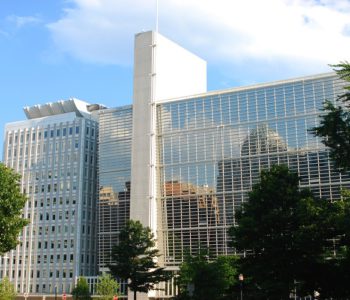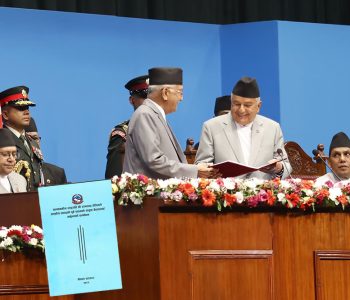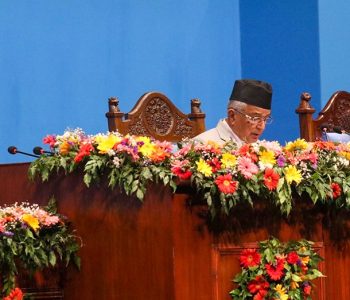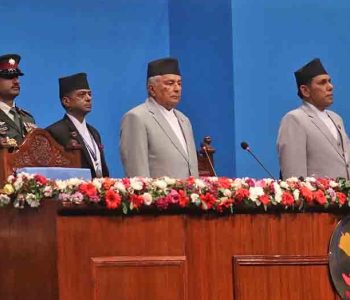IMF Expresses Concerns Over Slow Economic Reforms in Nepal

KATHMANDU: The International Monetary Fund (IMF) has raised concerns regarding the slow progress of Nepal’s government in implementing crucial economic and financial reforms. Following a recent visit to the Himalayan nation, an IMF delegation led by Tidian Kinda, Deputy Division Chief of the IMF’s Asia-Pacific Department, highlighted several areas requiring urgent attention.
The delegation pointed out the necessity for amendments to the Nepal Rastra Bank (NRB) Act and recommended international audit reports on credits issued by numerous banks, alongside an independent audit of the NRB. These measures are part of a broader push by the IMF to make the NRB an autonomous entity by removing representatives from the Ministry of Finance from its board.
Moreover, the IMF stressed the importance of external audits of NRB’s financial transactions and scrutinizing loans provided by the ten largest banks. Other reform recommendations include detailed reporting on the utilization of tax-generated funds, assessing financial risks within the government system, refining the selection procedure in the national project bank, and formulating and implementing guidelines for development and prioritization.
“Establishing the project bank and allocating expenditures for prioritized development work will help curb rampant spending by political leaders. It will also enhance budget transparency and ensure effective expenditure,” the IMF stated in its press release.
In collaboration with the IMF, the Nepali government has been striving to make its financial and economic reform measures more effective. Current policy measures being developed include strategies for Inland Revenue mobilization, work plans to increase capital expenditure as allocated by the budget, and enhancing financial transparency.
The recent IMF visit also confirmed the release of the fourth installment under the Extended Credit Facility (ECF) to Nepal. During the COVID-19 pandemic, the IMF Executive Board approved a concessional loan of USD 398.8 million to Nepal under the ECF, disbursed over four years starting from mid-January 2022. With the third installment already disbursed, the final installment of NPR 5.59 billion (approximately USD 42 million) is still pending.
The IMF has been providing financial assistance to various countries through the ECF, focusing on structural and policy reforms, medium-term balance of payments, Inland Revenue mobilization, public investment management, and financial risk reduction. Nepal has utilized the ECF loan for budgetary assistance, aiming to stabilize and improve its economic framework amidst ongoing challenges.
This ongoing partnership between Nepal and the IMF is critical in ensuring the country’s economic stability and fostering sustainable growth.













Facebook Comment